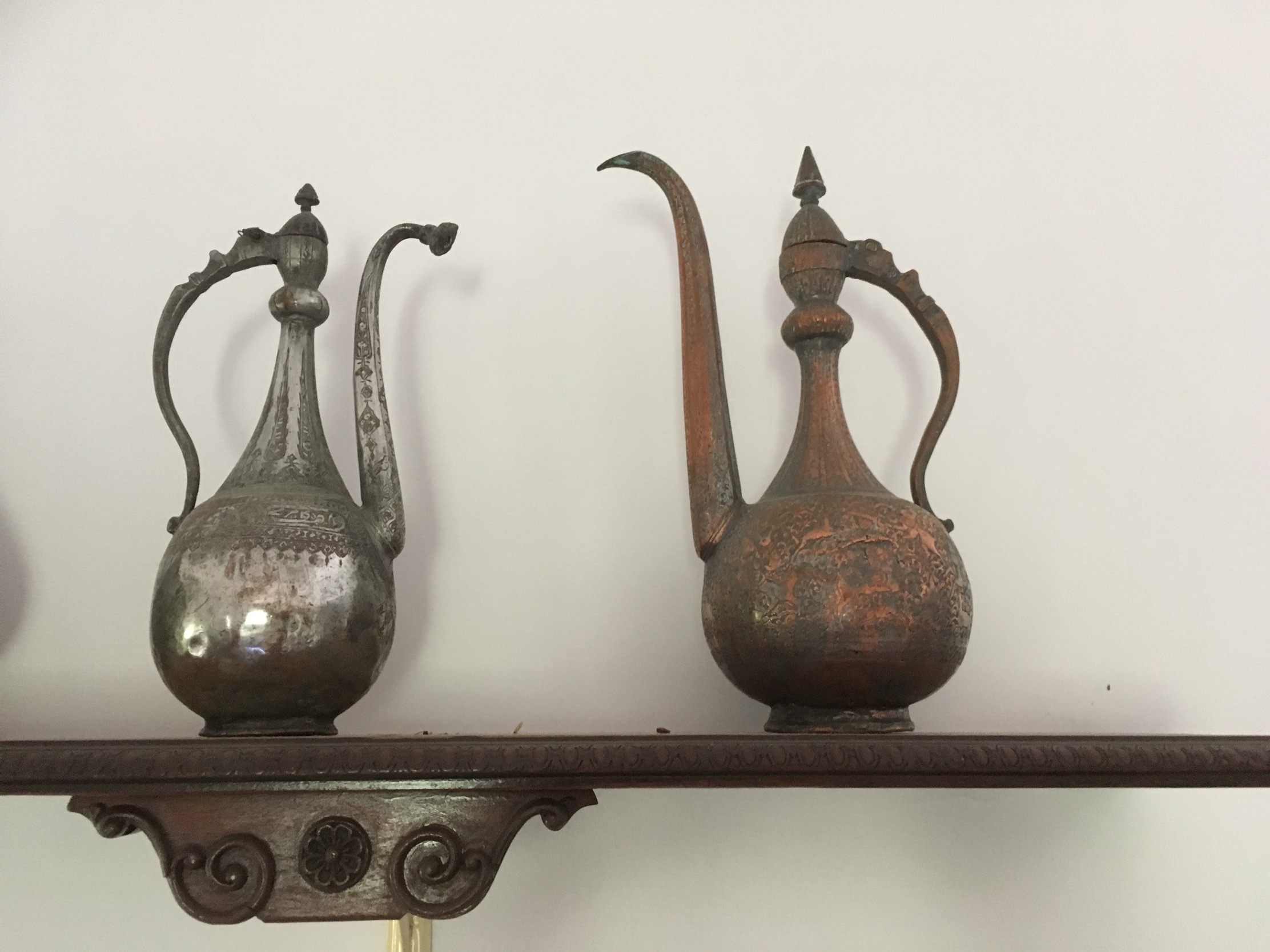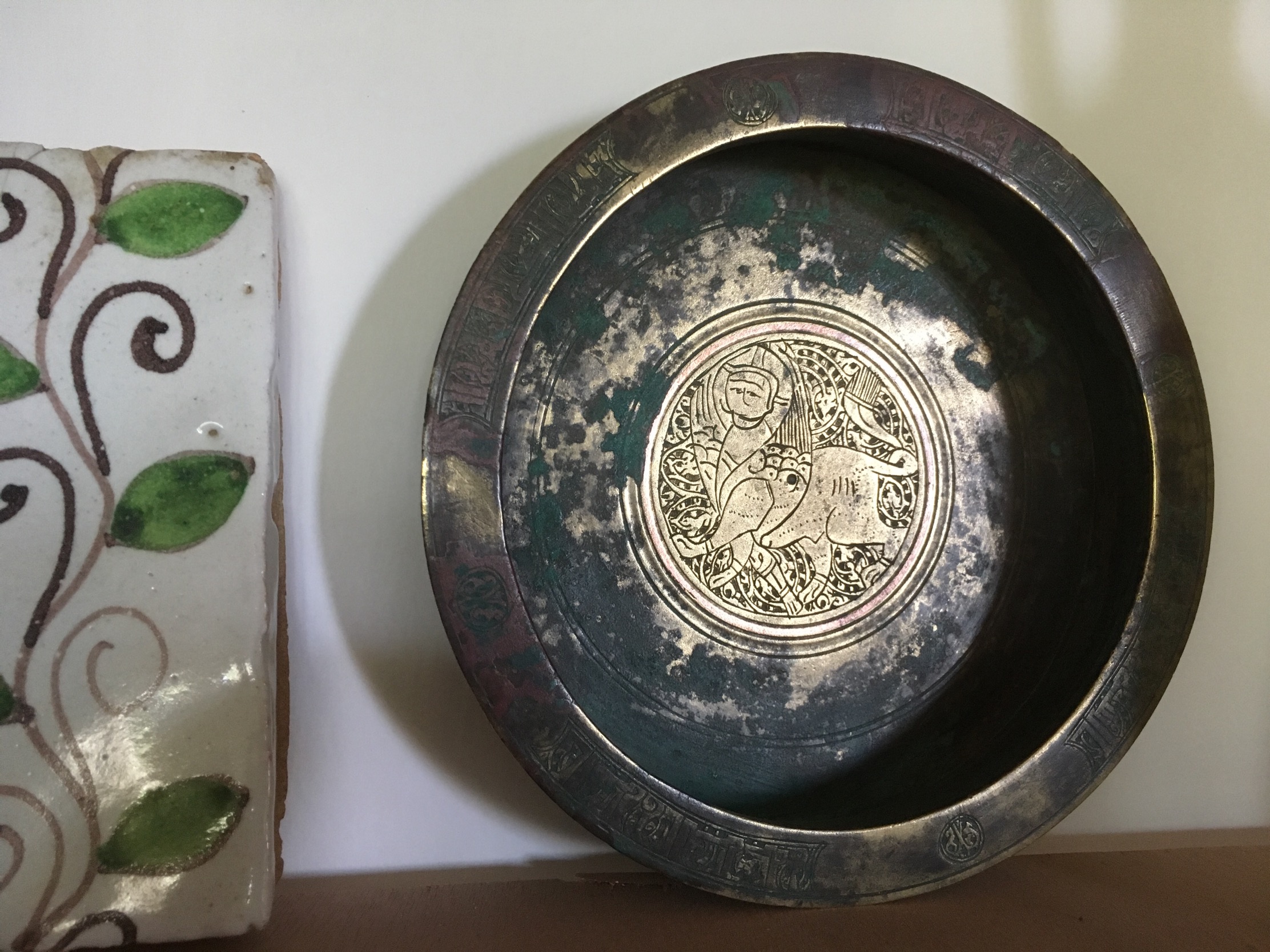May 15, 2018
Jaffa, Israel
Jaffa has a compelling hold on me. There is a deep sense of history in every corner. I often walk along the coastline, or through the winding streets admiring the Arabesque architecture. Many of the houses are dilapidated but their prior glory still shines sporadically through the debris and neglect.
I don’t know how it happened, but recently I found myself wandering near the hub of Jaffa’s flea market. It’s been years since last I visited here. I walked aimlessly through the alleys taking pictures, feeling contemplative, as if filming a personal documentary and attempting to capture the extent of the city’s transformation.
I first discovered the flea market when I was 18. For years I went on regular jaunts that resembled a hunting expedition. I developed a penchant for antique copperware. My interest was in handmade items that displayed a combination of artistry and practicality. I learned how to conduct negotiations with each of the the shrewd veteran merchants; they also got to know me and what I was searching for. The merchants only bothered showing me items that were between 100 and 300 years old, made of heavy copper, perfectly executed and exquisitely decorated.
One major rule guided me in my hunting days—I would begin bargaining only when I was absolutely sure that I liked the piece I was holding so much that not only did I want to buy it, but I was not willing to part with it. I always checked the copperware methodically, examining the decorations to verify they were authentic and not added at a later time to increase the “value” of the item. I would feel its weight in my hand, turning it from side to side. I would bring the piece close to my nose and smell deeply, trying to discern its past.
That’s when the bargaining would begin. This required a delicate balance between determination, perseverance and a seeming nonchalance. I would offer a sum much less than the seller’s asking price, while pretending that I wasn’t even sure that I wanted to purchase. At the same time I needed to hide my growing passion for the item in my hand, which I had just met but had already fallen deeply in love with. This was a skill that I honed over the years. Often the merchants would give up, shaking their heads in despair as I walked away pretending that I was no longer interested. Surely, more times than not, they would call me on my way out, urging me to return. “Defeated” but still satisfied, they would accept my offer, or something close to it, and the deal would be closed. As I clutched my new acquisition, I would always feel so grateful that they hadn’t given up on me.
Over time I developed an impressive collection of antique copper. Yet, eventually my collection felt saturated. The course of my life changed and my interests also shifted.
But there always remained a deep yearning for Jaffa.
As I neared the flea market, I noted how many of the old stores had been transformed into bars and restaurants. The entire appearance and atmosphere of the market had radically changed. Even so, I felt a wave of nostalgia. I was returning as a hunter not of things, but of memories.
 Ilan Peri
Ilan PeriUnaware of where I was, I found myself standing in front of the store owned by Avraham Zakaim. Still operating. I smiled, feeling thankful. Here I bought my very first copper piece. It was an old, delicately engraved jug which I gave to my mother as a present. Then I saw him, Zakaim. Though years had passed, I clearly recognized his thin bent contour at the entrance. It seemed like time stood still. Even back then, there was something that made him seem old for his age—gaunt, with an intense gloomy glare. This visit, he was still thin and only slightly more bent, but somehow he seemed younger than his years.
I came towards him, smiling. He immediately recognized me, despite the decades that had passed.
“Hi Avram,” I said as I clasped his hands. Close up I could see his face was deeply scored with ridges. “How are you?”
He returned a broad smile. “I’m still here. No choice,” he sighed. “The children want other occupations. So long as I can stand on my feet I’m here, no complaints.”
“I still remember the copper jug you bought for your mother,” he said. He waved a bony finger at me. “How is she?”
“Oh, she died,” I said as I lowered my voice. “The jug is with me. She liked it a lot so now it’s a sweet memento.”
He fell silent. His gaze wandered to the clock on the tower outside.
“Time doesn’t visit you,” I joked as I pointed t,o the clock.
“It only appears so,” he replied—his voice faint. “Truth is I’m afraid to stay at home and stop working. That will be the end of me.” Now I fell silent. How could I reply? We shook hands and I continued on my way.
Next, my legs took me to Amotz. His cramped colorful store is on the main street of the flea market. I identified it from afar by the antique yellow motorcycle with the side boat that’s always parked in front. Amotz is an expert on just about everything. He sits at a small workbench at the entrance of the store, always fixing or adapting items that he’s found or purchased. Palestine—Land of Israel is the name of his store.
The place is crammed. From specialized work tools serving functions that no longer exist to old photos and pictures from over a century ago. An old working fan sent a soft breeze. In Amotz’s place each vintage item gets treated with respect, rejuvenated and lovingly placed on display.
He greeted me jovially. As he stretched out his arm to reach the nearby shelf, I suddenly noticed that the arm was completely covered with tattoos. He caught my glance and raised both sleeves, proudly showing his heavily decorated arms.
“Listen,” I said, realizing I couldn’t contain my concerns. “I hope you’re not planning to continue covering major parts of your body.”
“Why?” he asked, smiling mischievously.
“You know that the Yakuza in Japan cover their entire bodies with tattoos and in the end they need a liver transfer since their skin can’t breathe and remove toxins from their bodies.”
He was a bit startled by my stern lecture, but as he pulled out two icy bottles of beer we toasted the Yakuza.
Feeling pleased for my good deed with Amotz, I continued in the direction of Kadosh, the grumpy man who had absolutely the worst temper in the market.
But I never reached his corner. Suddenly wondrous musical tones coming from some mysterious source caught all my attention. Music has always been a secret unfulfilled passion for me which I lately realized I want to bring to fruition. Enchanted, I followed the sounds as if I was trailing the Pied Piper himself. These were the profoundly mesmerizing tones of a pantam, one of the most exceptional instruments I’ve encountered.
When I turned the corner I saw a young muscular man was sitting in front of his store playing, completely absorbed. Moved and excited, I stood speechless.
He lifted his head, smiling. “Hi, I’m Gal.”
“A pleasure,” I replied. “I’m Ilan.”
I wondered whether this was chance. Now, when I’ve felt the passion for music rise up in me again, when I’m deliberating how to make such a crucial change happen, I run into Gal and his instrument. Is this a message?
“Please play some more,” I said.
When he finished playing another piece we began to talk. I spoke of my love for the pantam with its special ethereal tones. I told him that these sounds pierce my heart and enter my soul.
He turned to me and said unexpectedly, “Listen, I’ve recently ordered a new one and I’ll be selling mine. It’s been with me for three years and has an especially rich tone. Want to think about it?”
There is no coincidence here, I told myself. Let spontaneity be the guide, I said silently as we exchanged phone numbers.
My feet had known exactly where to lead me.
Ilan Peri, Israel, Antiques, Jaffa






